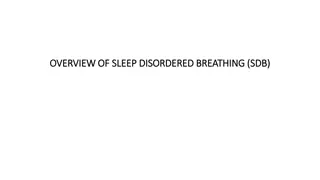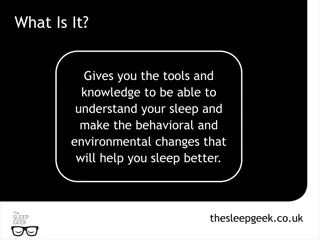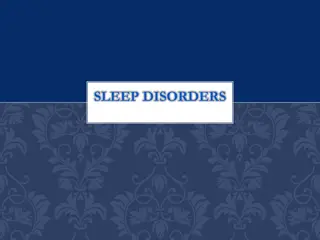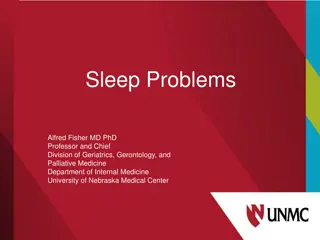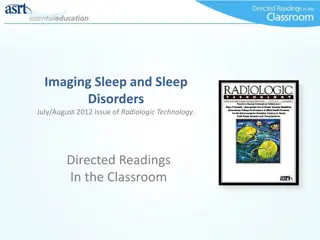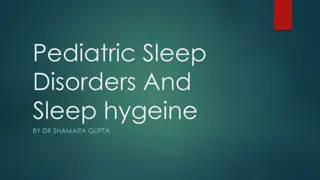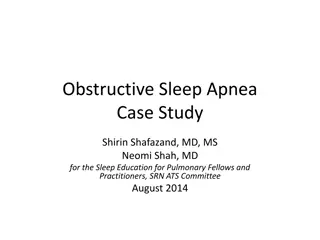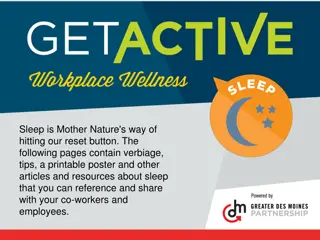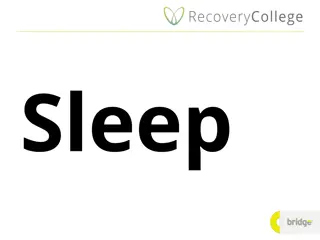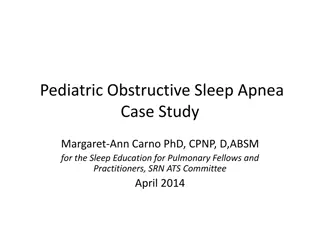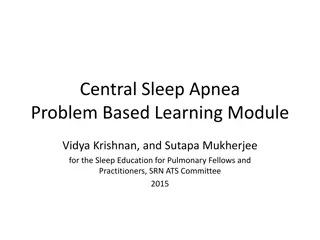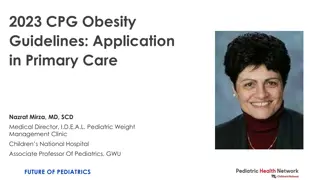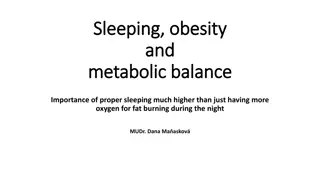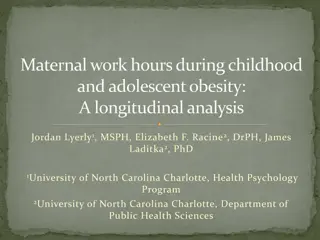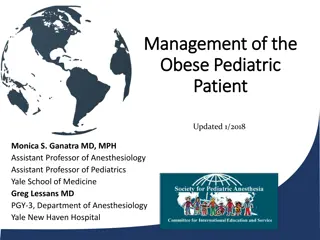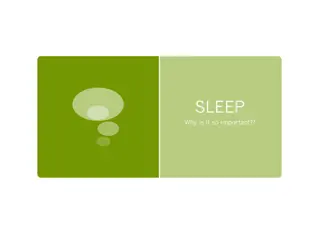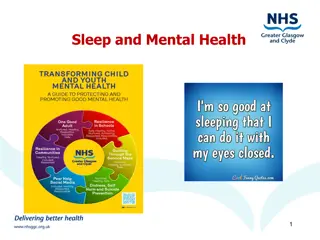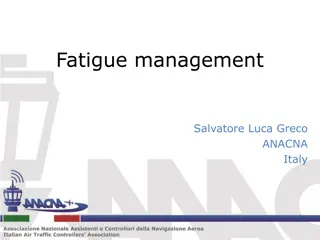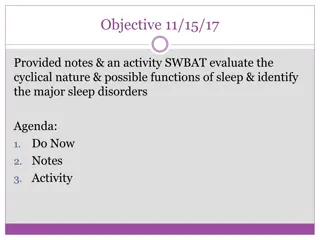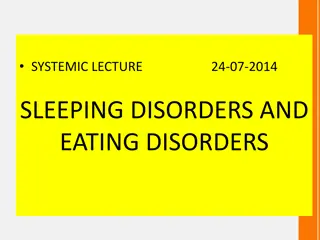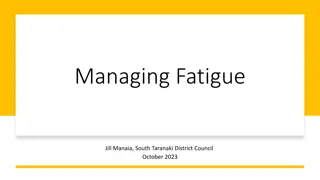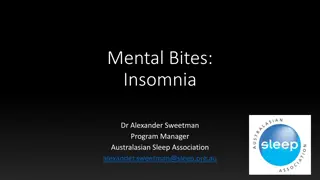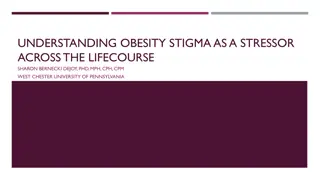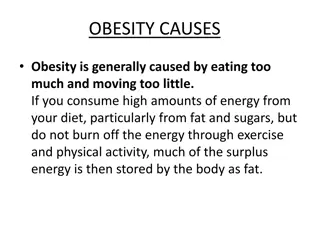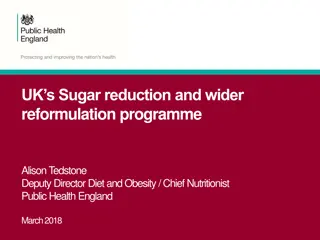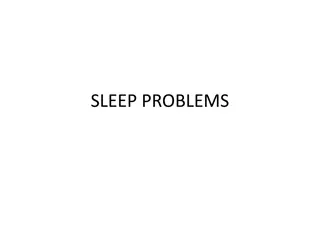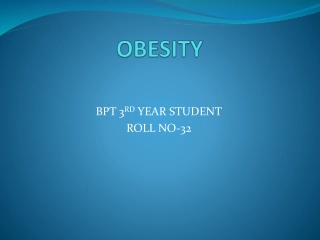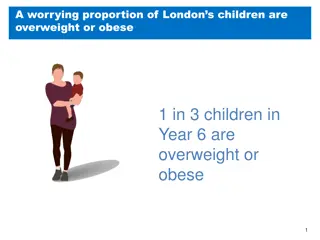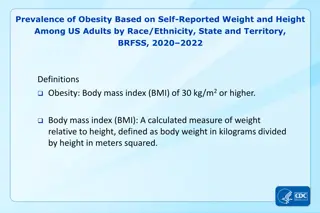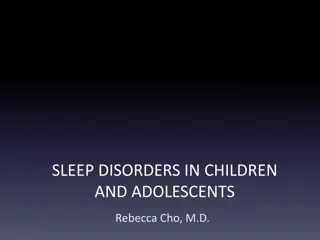Understanding the Link Between Obesity and Sleep Apnea
Sleep apnea is a serious disorder where breathing pauses frequently, leading to symptoms like snoring, tiredness, and more. Issues such as frequent bathroom trips, poor concentration, lack of dreaming, and hormonal imbalances can indicate sleep apnea. Sleep deprivation or disordered breathing can affect hormones like leptin, ghrelin, and cortisol, contributing to weight gain and metabolic problems. Diagnosis through a sleep study test and treatment with CPAP can improve sleep quality and aid in weight loss.
Download Presentation

Please find below an Image/Link to download the presentation.
The content on the website is provided AS IS for your information and personal use only. It may not be sold, licensed, or shared on other websites without obtaining consent from the author. Download presentation by click this link. If you encounter any issues during the download, it is possible that the publisher has removed the file from their server.
E N D
Presentation Transcript
Obesity and Sleep Apnea
What is Sleep Apnea? Sleep apnea is a potentially serious sleep disorder in which breathing repeatedly stops and starts. If you snore loudly and feel tired even after a full night's sleep, you might have sleep apnea.
Getting up multiple times to use the bathroom during sleep Difficulty concentrating during the day Lack of dreaming Gastroesophageal Reflux (GERD) Hormone Imbalances
Snoring, Sleep Apnea and Hormones Leading to Weight Gain Sleep deprivation whether from bad habits(work, devices at night or lifestyle)or sleep disordered breathing(OSA) will negatively impact metabolism Leptin (makes you feel full, inhibits hunger). These levels decrease with poor quality sleep Ghrelin (makes you hungry). These levels increase with poor sleep More ghrelin and less leptin equals weight gain Cortisol (the stress hormone) levels are elevated with poor sleep = crave more sugar and fatty (comfort) foods Insulin resistance fragmented sleep and minimal REM sleep can disrupt proper insulin regulation and lead to increased insulin resistance and eventually diabetes
How do you find out you have sleep apnea? Treatment with CPAP will improve sleep and often lead to weight loss A Sleep Study Test needs to be performed-see you PCP


